Africa. Political forecast 2024.
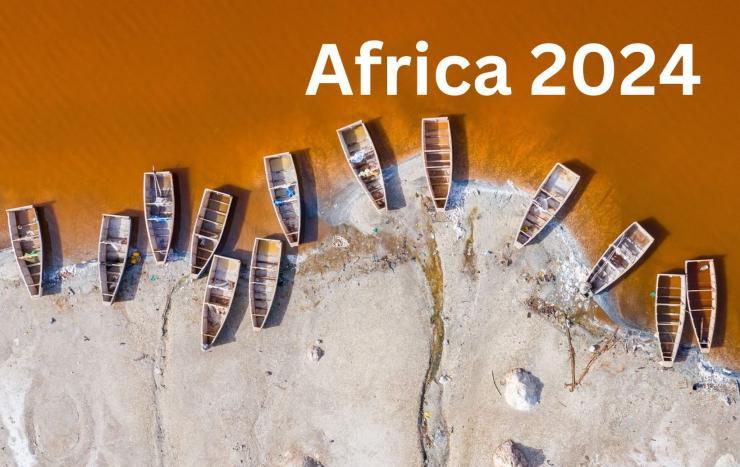
The ongoing jihadist expansion in the Sahel region and attempts to stop it, the aftermath of the general elections in the Democratic Republic of Congo and the projected decline of the ANC in the South African polls, are the main trends expected for this year.
In 2024, the main concern in West Africa will be whether the member countries of the G5 Sahel block will be able to stop the ongoing dramatic jihadist expansion. According to a UN report leaked in August 2023, the size of the areas controlled by the Islamic State in the Greater Sahara (ISGS) has doubled within a year, while the Jama’at Nusrat al-Islam al-Muslimin (JNIM), a coalition of four Al Qaida linked groups is also gaining influence. Two Gulf of Guinea countries, Togo and Benin, are particularly worried. Since 2021, they have become increasingly under the threat of jihadist incursions after the collapse of the government control over most of neighbouring Burkina-Faso.
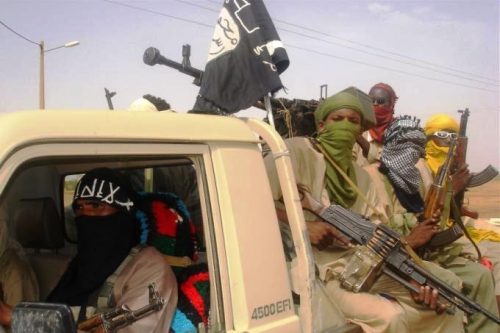
Jihadists in the Sahel. File swm
It is difficult to predict in such context, whether the presidential election can take place as promised in Mali this year. The government doesn’t control half of the national territory. And the junta announced in September 2023 that the election, scheduled for February 2024 would be postponed, owing to a dispute with the French company that managed the voters’ data register.
Meanwhile, in Mauritania, pundits predict a comfortable victory for the incumbent, 66-year-old General Mohamed Ould Cheikh El Ghazouani who, is running for a second mandate at the next presidential election scheduled for June 2024.
The candidate of the anti-slavery movement, Biram Dah Abeid who is also running, is unlikely to defeat the head of state.
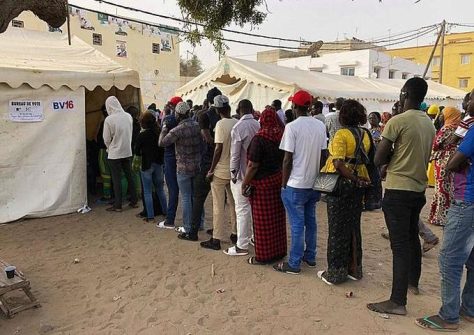
Senegalese voters queueing in Grand Yoff (Dakar) for the presidential election in 2019. VOA / Seydina Aba Gueye
In Senegal, where the incumbent Macky Sall has decided not to run again for the presidential election scheduled for February 2024, the paradox is that the most popular politician, 49-year-old Ousmane Sonko has not been allowed to participate in the race. In June, a court sentenced him to two years in jail for allegedly “corrupting youth” prompting Sonko’s supporters to claim that the accusation is a plot staged by the Sall regime to prevent him from running.
On 11 October, a judge of the Southern city of Ziguinchor ruled that Sonko who has been jailed since July 2023 should be allowed to be part of the 30 candidates who are campaigning. But President Sall’s lawyers have appealed the decision in front of the Supreme Court and the Ministry of Interior has refused to allow Sonko to register as a candidate on 31 October. Sixty-year-old Prime Minister, Amadou Ba was appointed by Sall as the candidate of his Benno Bokk Yakaar party last September. But his chances are eroded by the decision from the Minister of Agriculture, Aly Ngouille Ndiaye, to run anyway.
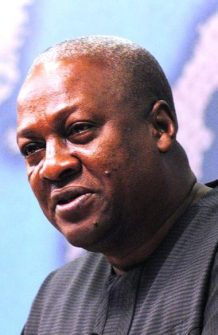
John Dramani Mahama. CC BY 2.0/ Chatham House
In Ghana, the outcome of the forthcoming presidential election on the next 7 December, seems undecided. The main opposition party the National Democratic Congress (NDC) picked former President John Mahama as the presidential candidate in May 2023 while Vice-President Mahumudu Bawumia seems the most likely to be on the ticket of the ruling New Patriotic Party (NPP). Both parties are neck and neck. Both have an equal number of MPs in the parliament. And both have given cash and other inducements during by-elections to buy the people’s vote. Yet, the NPP is facing apathy among its base as the government is faced with waning support because of the disenchantment of the citizens caused by its lack of success in front of the economic crisis. The NPP has also been weakened by the decision Ghana’s former trade minister Alan Kyeremanten to resign from the party and run as an independent candidate.
Chad should organize as well general election by November 2024, according to the promises of Interim’s President Mahamat Idriss Deby who declared in October 2023 that political parties should prepare
for free elections.
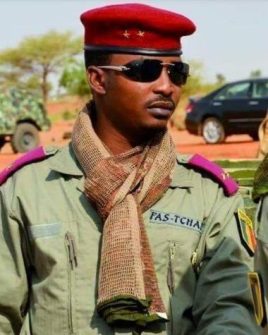
Chad’s military leader, Mahamat Idriss Deby Itno. File swm
Deby who was named head of an 18-month transitional council in April 2021, has been declared eligible to run for the presidency by the Inclusive and Sovereign National Dialogue. According to Chadian political scientist Tama Ahamat, the fragmented opposition will find it difficult to beat Deby because of its divisions.
In Eastern Africa, the Somaliland Electoral Commission announced last July that the presidential election of this self-proclaimed republic will take place in November 2024. The issue is to put an end to the crisis created by the postponement of this election which should have taken place after the expiration of President Muse Bihi Abdi’s term in November 2022. The delay has threatened political gains won by Somaliland, which since its unilateral independence in 1991, has enjoyed relative peace in the Horn of Africa. In 2022, reluctance from the incumbent President to organize the polls led to anti-government demonstrations in several cities.
Thirteen years after the independence referendum in 2011, Southern Sudan expects to hold its first elections in December 2024. Some citizens fear that the campaign might be violent, that elections could be held without sufficient preparations, or that the transitional period could be extended again. Surveys show however that a majority of South Sudanese are opposed to any further delays to elections.
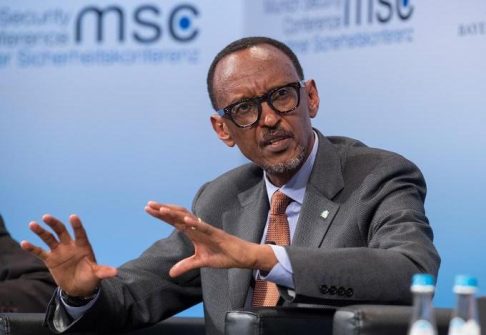
Rwanda’s President Paul Kagame. CC BY 3.0/Hildenbrand /MSC
In Rwanda, everyone expects President Paul Kagame to be reelected for a fourth term in August since the Rwandan opposition has a narrow margin of maneuver and not much to offer in a country which is one of the most stable in Africa despite complaints from rights groups about an alleged climate of fear. Kagame announced in September 2023 his intention to run again without causing much surprise since controversial constitutional amendments in 2015 allowed him to run for more terms and stay in power until 2034.
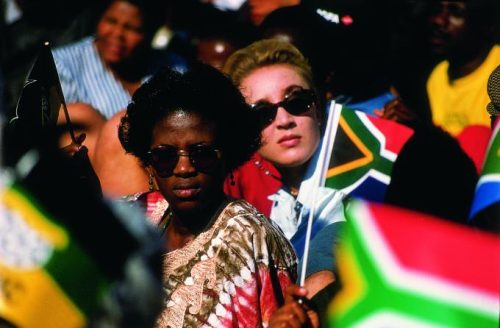
In South Africa, for the first time since the end of the apartheid, the ruling African National Congress is expected to score below 50% and might not retain a majority in the parliament. File swm
In South Africa, for the first time since the end of the apartheid, the ruling African National Congress is expected to score below 50% and might not retain a majority in the parliament after the general elections in May 2024. The rival Multi-Party Charter (MPC) coalition led by the opposition Democratic Alliance which gathers six other parties including the Zulu-based Inkhata Freedom Party, FF Plus, ActionSA and ACDP, is a serious challenger. Should the MPC win, the consequences could be enormous including at the global level, since unlike the ANC-led government, the DA has condemned the Russian invasion of Ukraine and has expressed its concern about the recent admission of Iran and Saudi Arabia in the BRICS. This scenario, however, could be averted if the ANC forms a coalition with Julius Malema’s Economic Freedom Fighters. The EFF portrays itself as the true custodian of the values of the ANC and as an anti-capitalist party which pushes for land reform and scares the white farmers. Joblessness, crime, and intensifying corruption coupled with the deterioration of public infrastructure, such as the supply of electricity and the decline of the quality of public services have given the opposition a platform to challenge the ANC’s dominance.
The most likely scenario is that the ANC would remain the first party while Ramaphosa looks as his probable own successor but it still remains to be seen if it will need the EFF support in the parliament and in the government to remain in power.
In Botswana, the opposition is hoping to defeat the ruling Botswana Democratic Party (BDP), led by Mokgweetsi Masisi, which has remained in power since independence in 1966 but is now faced with accusations of corruption. The opposition is encouraged by its success in 2022 when the Umbrella for Democratic Change (UDC) coalition won by-elections. The opposition is expected to make gains at the November general elections but President Hage Geingob’s successor, Netumbo Nandi-Ndaitwah is likely to become the first female President.
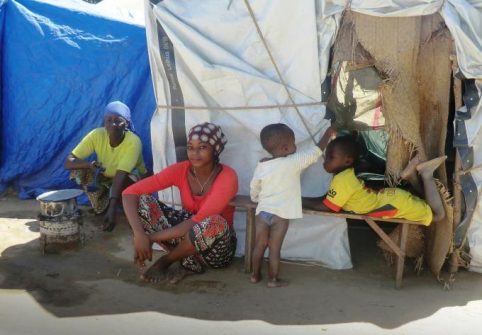
Mozambique. An internally displaced family in a camp in the district of Metuge, in the province of Cabo Delgado. File swm
In Mozambique, President Felipe Nyusi’s ruling FRELIMO party is expected to secure victory at the October 2024 general election. But social unrest could follow the election due to Nyusi’s pursuit of a controversial third presidential term. Analysts do not rule out the possibility of a rise in violence caused by the armed wing of the major opposition party, RENAMO. It is also uncertain that elections will take place in the Northern Cabo Delgado province owing to the ongoing violence perpetrated by the jihadist insurrection.
In Comoros, the first round of the presidential elections will be held on January 14, with the incumbent head of state and current president of the African Union, Azali Assoumani, standing for re-election. A second round is scheduled for February 25 but the division of the opposition which denounced a ballot “played out in advance” and “another electoral farce”, and threatened to boycott the election, makes it unlikely. Opponents have little space to campaign anyway. Since he took power in 1999, after the coup, Azali Assoumani has jailed many opponents.
General elections are due to be held in Mauritius by the end of 2024 or at the latest, by mid-2025. For the first time in the history of the Republic, the opposition is united behind the 76-year-old former PM Navin Rangoolam, leader of the Labour Party allied with Paul Béranger’s Mauritian Militant Movement and Xavier Duval’s Social-Democratic party. The opposition coalition hopes to defeat the ruling Militant Socialist Movement whose leader, the current Prime Minister Pravind Jugnauth is accused of corruption and power abuses by his rivals. (Open Photo: Pixabay)
François Misser
African Affairs Analyst



